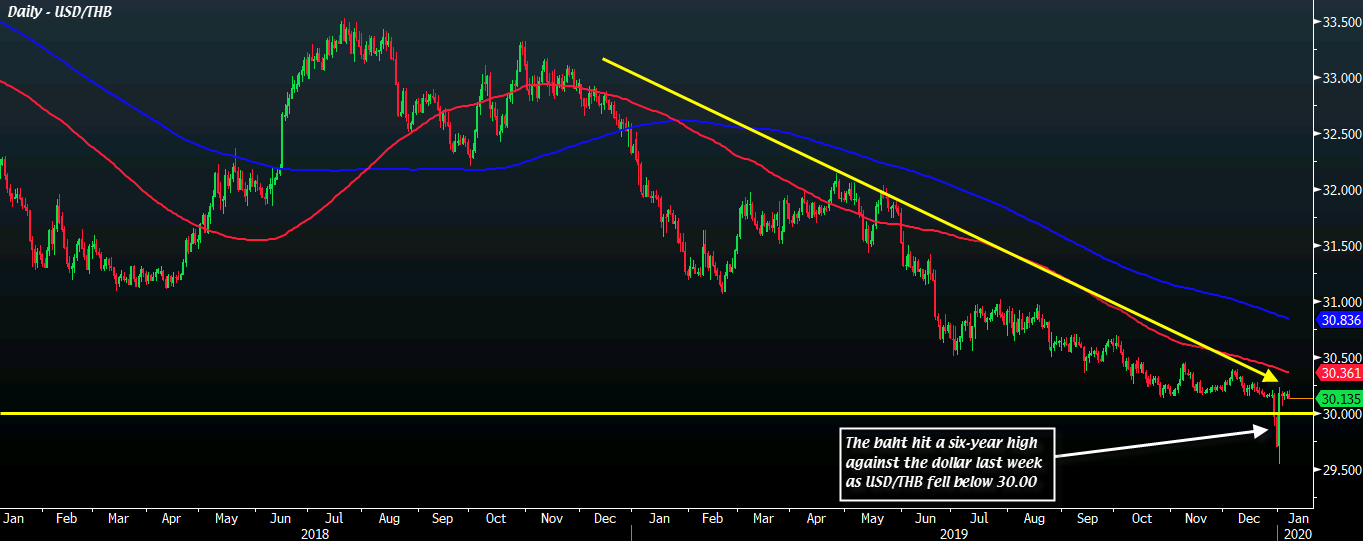No, it is not the Swiss National Bank
Bank of Thailand governor Veerathai is out speaking to reporters now and is saying that the Thai baht isn't a safe haven amid US-Iran tensions and that the central bank is closely monitoring the currency at the moment.

This is a currency that has appreciated by more than 8% against the dollar last year and is one that has had a peculiar year in trading - in the sense that the baht appreciates when it is risk-on but also when it is risk-off. Hence, the remark by Veerathai above.
(For context, the baht is an emerging market currency so good news for global growth and risk-on headlines will help the currency gain. At the same time, Thailand has a decent current account surplus and is backed by an adequate amount of foreign reserves. Hence, investors have started to look at the baht as a "safe haven".)
During thin liquidity conditions last week, the baht strengthened to a six-year high and USD/THB fell below the 30.00 level. The central bank has since come out to say that they will defend the level and so far price action is respecting that.
However, unless the central bank is looking to take further action, it may just be a matter of time before the baht creeps higher yet again.
The worry here is that the stronger baht is going to weigh further on exports and tourism - two of the country's key economic sectors. As such, the central bank is put in a tough spot.
They either have to let the economy suffer or strictly intervene in an effort to devalue the currency - which is not easy to do in the current global climate.